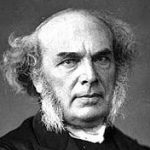Lesson Focus: This lesson focuses on how a growing relationship with Christ changes a person’s values and ways of thinking.
Don’t Depend on Your Resume: Philippians 3:2-6.
[2] Look out for the dogs, look out for the evildoers, look out for those who mutilate the flesh.
[3] For we are the circumcision, who worship by the Spirit of God and glory in Christ Jesus and put no confidence in the flesh– [4] though I myself have reason for confidence in the flesh also. If anyone else thinks he has reason for confidence in the flesh, I have more: [5] circumcised on the eighth day, of the people of Israel, of the tribe of Benjamin, a Hebrew of Hebrews; as to the law, a Pharisee; [6] as to zeal, a persecutor of the church; as to righteousness under the law, blameless. [ESV]
[2] In a sudden shift of attention, Paul blurts out three terse warnings. These warnings raise some difficult questions: Who are these dogs, and where are they? Why does Paul warn against them? Why does Paul use these derogatory names for them, and what do these names mean? What does Paul mean when he says to look out for these people? As abrupt as these warnings appear to be in the flow of Paul’s discourse, their place in the structure of his letter can best be understood by seeing how they serve in a familiar pattern as a series of negative condemnations of bad examples linked with a series of positive commendations of good examples. Paul first guides his readers by using three present tense imperatives that call for association with and imitation of good examples: receive him, honor such men, rejoice in the Lord [2:29-3:1]. Now three more present tense imperatives call for dissociation from and repudiation of bad examples: look out for the dogs, look out for the evildoers, look out for those who mutilate the flesh. Paul repeats the imperative look out three times and each time attaches dangerous direct objects – dogs, evildoers, mutilate – to the verb. Paul is not calmly advising his readers to do some academic analysis of possible alternatives; he is urgently warning them to look out for harmful adversaries. Paul’s contrast between mutilation and the true circumcision and his boasting of his own Jewish privileges indicate that these people evidently exalted the importance of circumcision and boasted of their Jewish credentials. Although they were posing as Christian teachers, they placed their emphasis on belonging to the Jewish people. They heaped scorn upon those outside the Jewish family by calling them by traditional Jewish names for outsiders: dogs and evildoers. Now Paul turns the tables on them and calls them by the same derisive names that they have used for those whom they have excluded. Paul calls these Judaizers evildoers for two reasons. First, they are evildoers because their emphasis on the works of the law turns into a self-reliance that obscures the need for salvation in Christ. Second, they are evildoers because their work to convert Gentile Christians to Judaism by requiring circumcision and works of the law harms Christians by misleading them to supplement faith in Christ with works of the law. The harm that these dogs and evildoers cause now comes into clear focus: they mutilate the flesh. The term mutilate is a sarcastic twist on the significance of circumcision: circumcision, the sign of the Jewish covenant, has no more value than mutilation if it replaces faith in Christ as the basis of belonging to the people of God. The Law and the Prophets taught that circumcision as an outward sign has no value unless it is a sign of a spiritual attitude of submissive obedience to the will and word of God. Paul reflects the same assessment of circumcision [see Romans 2:28-29]. By placing such a great emphasis on the Jewish rite of circumcision as the only way to belong to the people of God, the Judaizers had turned circumcision into something as worthless as the pagan rite of mutilation of the flesh. When Gentile Christians, under pressure from the Judaizers, accepted circumcision as the way to be included in God’s blessing upon the Jewish people, they were acting exactly like pagans in the surrounding culture who tried to gain favor with the gods by physical mutilation. Paul warned the Philippian Christians against these mutilators of the flesh. His warning applies to all ministers who draw people away from faith in Christ by insisting on the primary importance of religious rituals. Without faith in Christ and the inner work of the Spirit, even the most sacred rite is merely a physical act and a meaningless performance with no spiritual value at all.
[3] In direct contrast to those who turned circumcision into mutilation by requiring Gentile Christians to be circumcised, Paul now asserts, For we are the circumcision. The reason that Gentile believers in Christ should reject the requirement to be circumcised is that they already are the circumcision. Their new identity in Christ gives them the right to be called by the names for the people of God, even the name the circumcision. This name points to the physical sign of belonging to the covenant people of God. This sign was so highly valued by the Jews that they called themselves the circumcision. By saying we are the circumcision, Paul marks all believers in Christ, both circumcised Jews and uncircumcised Gentiles, with the sign of the covenant people of God: all now belong to the covenant people; all are now included within the special covenantal relationship that God made with His people. The dogs and evildoers are those who refuse to recognize that Gentile believers in Christ have full covenant membership in the people of God without having to be physically circumcised. In Paul’s sketch of those whom he calls the circumcision, he emphasizes three of their characteristic activities: (1) they worship by the Spirit of God; (2) they glory in Christ Jesus; (3) they put no confidence in the flesh. These are the true tests of what it means to be the circumcision.
[4-6] Paul now shifts from first person plural to first person singular. This shift of emphasis opens the way for one of the most stunning first-century self-portraits. In verses 5-6 Paul defines confidence in the flesh in terms of his pure Jewish pedigree, his upper-class social status, his blameless moral life as a Pharisee, and his personal piety based on the law. By presenting this self-portrait, Paul demonstrates that he meets every qualification for greatness and excellence in Jewish society. Nobody can surpass him. He challenges and overwhelms the competition. Paul’s ultimate aim is not to win this game of competition for status in the flesh but to ridicule those who value status in the flesh. After listing his superior advantages in the flesh, he declares that they are worth nothing to him now. He paints this portrait of himself as the perfect Jew to demonstrate to the believers in Christ in Philippi that (1) neither they nor the Jewish teachers could ever reach the level of his perfection and that (2) all these Jewish perfections have no value whatsoever compared to the value of knowing Christ. The purpose of this demonstration is to convince the Philippian believers to reject any propaganda for perfection by belonging to the Jewish people and by observing Jewish customs.
Get to Know Jesus: Philippians 3:7-9.
[7] But whatever gain I had, I counted as loss for the sake of Christ. [8] Indeed, I count everything as loss because of the surpassing worth of knowing Christ Jesus my Lord. For his sake I have suffered the loss of all things and count them as rubbish, in order that I may gain Christ [9] and be found in him, not having a righteousness of my own that comes from the law, but that which comes through faith in Christ, the righteousness from God that depends on faith–
Immediately after presenting the portrait of himself as a Pharisee to show that he looked better than others in the flesh [4-6], Paul now presents a strikingly different self-portrait [7-11] to demonstrate that he now considers even his most valuable assets in the flesh to be liabilities in the light of his knowledge of Christ Jesus his Lord. He introduces his new self-portrait with a simple, strong thesis statement: But whatever gain I had, I counted as loss for the sake of Christ. Looking back, this statement makes an emphatic contrast with Paul’s picture of himself as one who has good reasons to put confidence in the flesh [4]; looking forward, this statement sets forth the terms that are expanded and developed in the enlarged picture of Paul’s new life in Christ [8-11]. Paul’s radically new evaluation was the result of an intellectual process as he counted or considered his past gain in relation to the unsurpassing value of knowing Christ. Once Christ became the goal of his life, he could finally see and understand the true value of his life in the light of Christ. In verse 8 Paul changes from the perfect tense, I counted [7], to the present tense of the verb, I count, stressing his present attitude toward his gains and losses. Paul also expands the scope of his reevaluation because of Christ by changing the object of his consideration from whatever to everything and all things in verse 8. In the context, everything refers to all things that encourage confidence in the flesh. Thus all rivals of Christ are totally devalued. The reason for this drastic devaluation of everything is the surpassing worth of knowing Christ Jesus my Lord. When Paul speaks of surpassing worth, he is stating that the quality or value of knowing Christ exceeds and surpasses all alternatives. Knowing Christ Jesus my Lord changed Paul’s view of everything. Because his goal is to gain Christ, anything that stands in the way of that goal must be rejected as utterly worthless and repulsive as garbage. To explain why he considers his previous advantages as a loss and as garbage, Paul expresses his purpose with two verbs: that I may gain Christ and be found in him. The second verb amplifies the meaning of the first verb: to gain Christ means to be found in him. Paul explains the basis of being found in Christ by adding a clause that contrasts two kinds of righteousness: my own righteousness from the law and the righteousness from God through faith in Christ. His own righteousness is to be identified with what he counted as loss and as rubbish. But, Paul says, there is another kind of righteousness, not a righteousness that he achieved, but a righteousness that he received: that which comes through faith in Christ. Usually we would expect that a word has the same meaning in both cases when the same word is used side by side in the same sentence. But by setting up this strong contrast between his own righteousness and the righteousness that come from God, Paul presents two different meanings for the word righteousness. Paul’s own righteousness from the law denotes his own upright behavior determined by the law. The righteousness that comes from God does not come from Paul’s good moral conduct or from a superior level of conduct empowered by God, but from God’s judicial verdict of a righteous standing before God based upon being united with Christ.
Pursue a Mature Way of Thinking: Philippians 3:10-15; 4:8.
[10] that I may know him and the power of his resurrection, and may share his sufferings, becoming like him in his death, [11] that by any means possible I may attain the resurrection from the dead. [12] Not that I have already obtained this or am already perfect, but I press on to make it my own, because Christ Jesus has made me his own. [13] Brothers, I do not consider that I have made it my own. But one thing I do: forgetting what lies behind and straining forward to what lies ahead, [14] I press on toward the goal for the prize of the upward call of God in Christ Jesus. [15] Let those of us who are mature think this way, and if in anything you think otherwise, God will reveal that also to you. [4:8] Finally, brothers, whatever is true, whatever is honorable, whatever is just, whatever is pure, whatever is lovely, whatever is commendable, if there is any excellence, if there is anything worthy of praise, think about these things. [ESV]
[10-12] Paul’s goals are all Christ-centered: to gain Christ, be found in him, and know him. By restating his goals in these different ways, Paul keeps the focus completely on Christ and emphasizes that his relationship with Christ totally eclipses everything else in his life. The purpose of life in Christ is personal, intimate knowledge of Christ. Knowing the power of his resurrection and sharing in his sufferings are two inseparable aspects of his experience of knowing Christ. It is impossible to know the power of His resurrection without participation in His sufferings. Knowing the power of Christ’s resurrection provides the incentive and strength to participate in the sufferings of Christ. Paul knows by experience that the power of God that was demonstrated in the resurrection is now demonstrated by the power of the Spirit in his life and ministry. Just as Christ took the form of a servant [2:7] and became obedient to the point of death [2:8], so Paul desires to become like Christ in His obedience to the Father. Ever since Paul was grasped and apprehended by Christ, he has desired to grasp and comprehend Christ. But to know the incomprehensible greatness of Christ demands a lifetime of arduous inquiry. Paul’s desire to gain Christ and be found in him and to know Christ engages him in an intimate relationship with Christ that is a dynamic process of intellectual apprehension and moral transformation. Paul’s first denial that he has already fully grasped Christ leads to his second denial that he has already become perfect. Only when Paul sees Christ face to face will he be totally transformed by Christ’s power to be like him. Paul’s current imperfection, however, does not discourage him from pursuing growth in his relationship with Christ: but I press on to make it my own. This reveals Paul’s unrelenting determination to press on despite the limitations caused by his present imperfection. Rather than causing him to give up and quit, Paul’s sense of incompleteness compels him to press on; which means “to move rapidly and decisively toward an objective.” The ultimate reason for Paul’s pursuit of Christ is because Christ Jesus has made me his own. Paul has been captured by Christ, taken hold of by Christ, and Christ will not let go of him. Because of this work by Christ, Paul has all the reason, the endurance, the assurance, and the joy he needs to pursue Christ even if he has not already fully comprehended Christ. He is running hard after Christ with his heart wide open to receive Christ because Christ has already received him and arrested him by His love.
[13-15] Paul emphatically repeats his denial of perfection. The verb consider indicates that his admission of imperfection is a result of careful thought and thorough evaluation. After a careful assessment of himself, Paul draws the rational conclusion that he has not yet attained perfection. He has not yet attained to complete conformity to the standard of Christ’s obedience unto death on the cross, nor has he completely understood the full significance of Christ. He recognizes that his partial knowledge of Christ is a very long way from knowing Christ as much he desires to know Christ. In light of this realization Paul has only one goal: but one thing I do. The highest priority in his life captivates his full attention and demands total concentration. All his thoughts, emotions, and decisions are focused on this one thing. Paul paints a picture of his pursuit of this one thing with two parallel participial clauses: forgetting what lies behind and straining forward to what lies ahead. These two clauses give a dramatic portrayal of a runner who refuses to look back over his shoulder, but keeps straining every fiber of his being forward toward the goal. Progress in this race requires stretching beyond past and present accomplishments and reaching out to seize every opportunity to grow in faith. The reason for running this race of faith in Christ is win the prize of the upward call of God in Christ Jesus. All of Paul’s strenuous effort responds to and is empowered by the gracious initiative of God’s call. Paul uses the word call as a technical term to refer to the act of God that brings the one called into fellowship with Christ [1 Cor. 1:9] and at the same time into fellowship with other members of his body. The call of God stands at the beginning, not the end, of the race that Paul runs. God’s call initiates the relationship of believers in Christ, beginning with conversion and continuing to the future communion with Christ after death. The attainment of the prize of being with Christ at the end of the race is the fulfillment of God’s call at the beginning of the race. As a result of God’s upward call Paul pressed on all his life with the eager anticipation of the future prize of being with Christ and knowing Christ in the heavenly realm, free from all earthly limitations. The future goal of winning the prize captured Paul’s complete attention, set him free from the tyranny of the past, and filled his present life with the incentive to press on to take hold of all that Christ had called him to be and do. The mature attitude exhibited by Paul combines genuine humility, knowing that we have not already arrived at the goal, and whole-hearted commitment, straining toward the goal. Paul encourages all those who are mature in Christ to think as he does and be characterized by a whole-hearted pursuit of fellowship in Christ.
[4:8] Finally, Paul wraps up his directives for the Christian life with one long sentence containing the appeal: think about these things. As a result of God’s peace guarding the hearts and minds of believers, their minds focus on all that is excellent or praiseworthy. Paul defines all that is excellent with a list of six adjectives and two nouns arranged in an impressive rhetorical fashion. As a result of repeating the relative pronoun whatever before each of the six adjectives and omitting any conjunctions between these six clauses, Paul’s list of these six virtues appears to be expansive and comprehensive. Then two parallel conditional clauses summarize this list in terms of two nouns. The command to think requires Paul’s readers to give careful thought to a matter, consider, ponder, and let one’s mind dwell on something. Paul is calling for followers of Christ to be attentive, reflective, meditative thinkers. Developing a Christian mind and character requires a lifetime of discerning and disciplined thought about all the things that are excellent and praiseworthy.
Questions for Discussion:
1. Who are the dogs and evildoers in your life that you need to look out for? (Note in this passage that dogs and evildoers are those people who are trying to get believers to deny the true gospel and follow instead a works orientated relationship with God). In 3:3, Paul gives three traits of the true circumcision. Explain what they mean and apply them to your Christian life. How do you measure up to these traits? How can you improve in each of these areas?
2. Compare the two self-portraits that Paul gives in 3:4-6 and in 3:7-11. What caused the drastic change in Paul’s mindset? What do the verbs counted [7] and count [8] tell you about the process Paul used to arrive at his new priorities in life?
3. The two because statements in verses 8 and 12 give Paul’s reasons for this drastic change in his life. What are these two reasons? Do you understand how these two things could bring about such a radical change in Paul’s perspective on what is really important in this life?
4. The three that statements in verses 8b-9a, 10 and 11 describes Paul’s new purpose or goal in his life. What is this new goal? What do verses 13b and 14 tell you about how Paul intends to accomplish his new goal?
5. Have you experienced a similar change in your priorities when you came to understand the surpassing worth of knowing Christ Jesus as your Lord? How are you forgetting … straining forward and pressing on in your spiritual journey? What does verse 4:8 tell you about how you are to run the race?
References:
Let’s Study Philippians, Sinclair Ferguson, Banner of Truth.
The Letter to the Philippians, G. Walter Hansen, Eerdmans.

















